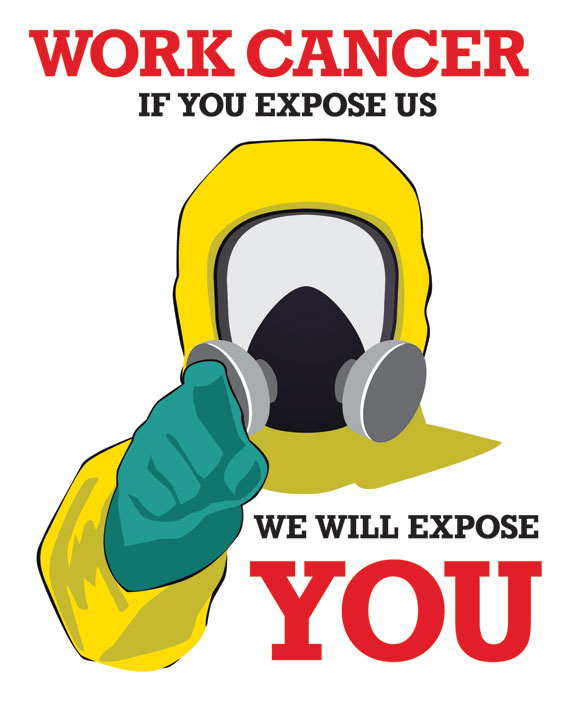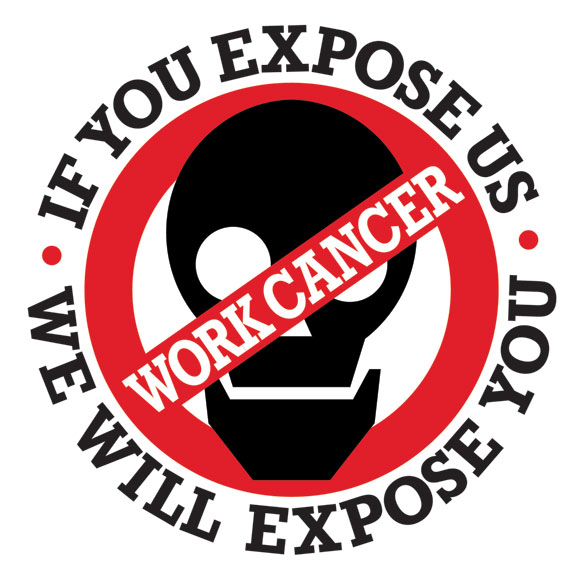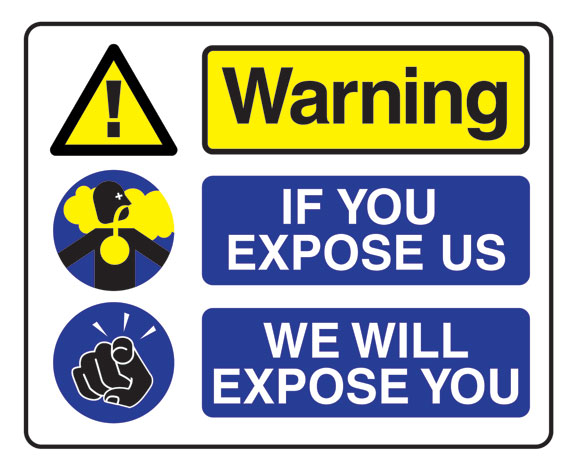 Constant Demand to Governments in Asia for Immediate Ratification of ILO Convention 155 and 170
Constant Demand to Governments in Asia for Immediate Ratification of ILO Convention 155 and 170
28 April a day of remembrance for workers who were killed, injured or disabled due to lack of proper health and safety at work. Workers’ Memorial Day is an opportunity to highlight the preventable nature of most workplace incidents and ill health and to promote campaigns for the fight of improvements in workplace safety.The basic slogan for the day is remembering the dead – fight for the living.
According to recent report of the ILO, currently, more than 374 million people are being injured or affected by illness every year by work-related accidents. It is estimated that economic loss due to OSH-related causes represent almost 4 per cent of global GDP, in some countries the cost can be as high as 6 per cent. The developing Asia is one of a key region in the world constantly suffering with high number of work related deaths, diseases and injuries caused by unsafe working condition.
According to a new report from the International Labour Organization (ILO), Changes in working practices, demographics, technology and the environment are creating new occupational safety and health (OSH) concerns. Growing challenges include psychosocial risks, work-related stress and non-communicable diseases, notably circulatory and respiratory diseases, and cancers. Death caused by hazardous substances at work are all time high linked to 1 million preventable death worldwide each year which is unacceptable.
It’s a great sorrow to mention that, the overall development approach in the field of OSH in Asia is mainly focused on workplace accident; addressing occupational diseases is still not a priority. Occupational diseases (silicosis, asbestosis and occupational cancers and many more) are invisible and imminent threat for workers in Asia. The absence of OSH Rights, social protection and just compensation for industrial accidents, injuries and diseases are pushing affected families deeper into poverty and making them vulnerable.
Recent tragic workplace accidents in various parts of Asia show that, health and safety of workers is not prioritized by employers or the enforcement authorities. Occupational accident victims specially women and young people are even being further marginalized as they find it even harder to find long term unemployment or forced to take precarious work that is low paid, unprotected and hazardous.
We must recognize the economic cost, the immeasurable human suffering such illnesses and accidents. These are all-the-more tragic because they are largely preventable.
According to UNHCR, exposing workers to substances that do not have a determination of a health-based safe level of exposure is a violation of their rights. At the most fundamental level, comprehensive information regarding the intrinsic health hazards of the vast majority of industrial chemicals continues to be absent, including their ability to cause cancer, to be mutagenic or to be toxic for reproduction Continued exposure of workers to such chemicals not only constitutes a challenge to the rights of these workers to information, but also may amount to exploitation by deception. Without such information about toxic exposures at work, this further limits the rights of workers to realize other related rights.
OSH legislations are outdated (regressive) as these generally fail to keep in step with emerging workplace issues and non-standard forms of employment. In many cases, workers in the informal economy, domestic workers, migrant workers are not covered under the legislations. Enforcement of OSH legislations are equally a serious concern in Asia and require joint responses at national and regional level. Updated OSH legislation in the Asian region reflecting the nature of work in Asia is crucial to prevent workplace accidents and diseases and to ensure just compensation for victims.
The ILO convention 155 (occupational health and safety) and 170 (chemicals convention) is considered as basic international labour standard for securing health and safety rights of all working people inside the national boundary; ensure safe chemical management and exposer fee workplaces. On the other hand, the important feature of the ILO convention 155 is applied to all workers in all branches of economic activity. Therefore, ratification of 155 by countries in Asia is very important to ensure state’s basic legal obligation, ensure occupational health and safety rights of all workers within the country. The formulation of harmonization of compensation systems and ratification of ILO Convention 155 is an urgent need in Asia.
Furthermore, the goal of ILO conversion 170 is to provide workers with information about the chemicals at their workplaces, and about appropriate preventive measures so that they can effectively participate in protective programmes; establishing principles for such programmes to ensure that chemicals are used safely, but regretfully it is found that, till now only few countries in Asia has ratified convention 155 such as China, Korea, Mongolia, Australia, Fiji and Kazakhstan. Its ratification status in south Asia and South East Asia is nil. On the other hand only 21 countries in the world ratified ILO convention 170 (chemical safety), and only China and Korea from Asian region are included that list.
The international community has long recognized health as a human right. But in a world where above 3 million workers continue to die every year as a result of occupational accidents and work-related diseases; it is time for safety and health at work to be recognized as a fundamental principle and right at work.
It has to be point out here that, one of key recommendations at just published Global Commission on the Future of Work report is a universal labour guarantee required that protects workers ’fundamental rights, an adequate living wage, limits on hours of work and safe and healthy workplaces.
On the International Workers’ Memorial Day 2019, ANROEV demanded to the governments in the region for immediately ratify the ILO Convention 155 and 170 as part of states obligation towards ensure safe, healthy and hazards free work places at national level.
Asian Network for the Rights of Occupational and Environmental Victims (ANROEV)







